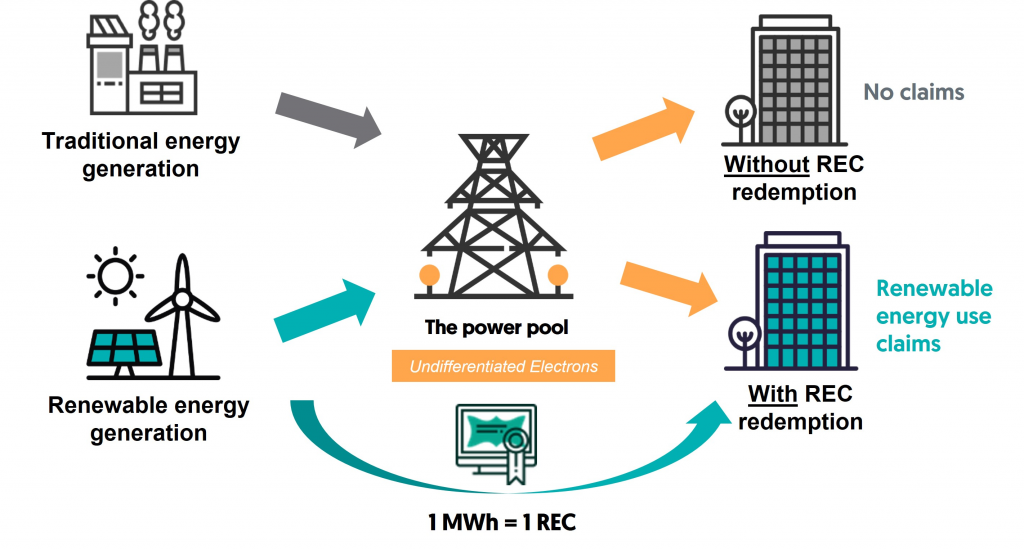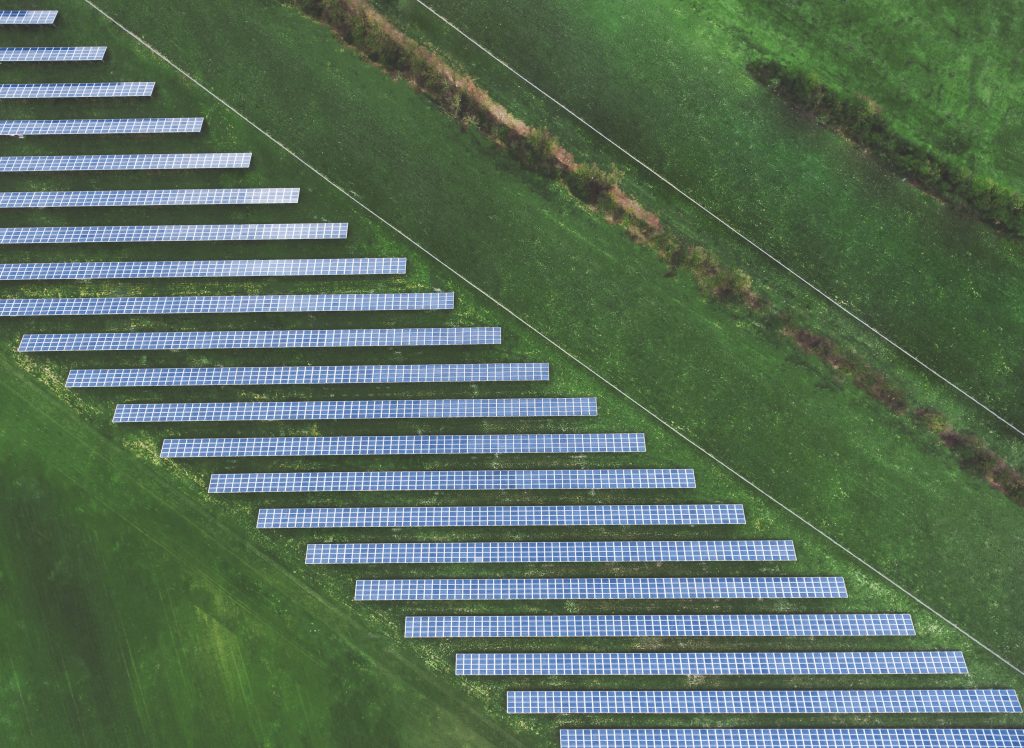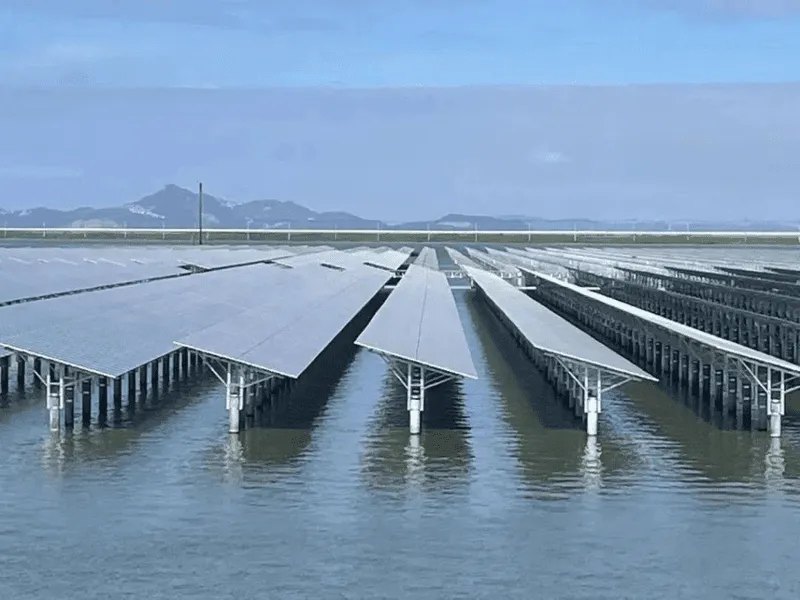Transforming Carbon Footprints into Renewable Futures
At GreenUP, we specialize in advancing sustainability and supporting environmental goals through our Renewable Energy Certificates (RECs) trading services. We provide a comprehensive platform that enables businesses and individuals to offset their carbon footprint and support renewable energy projects. By facilitating the purchase and sale of RECs, we empower our clients to contribute to global efforts in reducing carbon emissions and promoting green energy, all while adhering to the highest standards of transparency and integrity in the market.
What is a REC?
A REC is created when one megawatt-hour (MWh) of electricity is generated and delivered to the electricity grid from a renewable energy source, such as wind or solar power. Owning a REC is a way for companies and individuals to certify and claim that they have supported renewable energy generation. RECs allow the environmental attributes of renewable power to be separated from the physical electricity and traded in markets.


What is I-REC?
The I-REC is a standard for RECs in countries where there is no established national REC system. It serves the same purpose as a national REC system but is designed to be universally applicable across different regulatory environments. The I-REC standard ensures that renewable energy generation is verified and tracked in a consistent manner internationally, facilitating the global trade of renewable energy attributes.
Voluntary vs. Compliance Markets
RECs allow customers to purchase the environmental attributes associated with the generation of renewable power, without directly purchasing the electricity. RECs can be used for both voluntary and compliance purposes.
-
Voluntary markets: in which stakeholders choose to consume clean electricity. End users in voluntary REC markets often follow best practice guidelines from sustainability reporting frameworks.
-
Compliance markets: in which a government requires specific entities to consume renewable electricity, e.g. Renewable Portfolio Standards (RPS) and Renewable Portfolio Obligations (RPOs).

Who Need RECs and Why?
RECs serve a wide range of entities, from individuals to large corporations, each with unique motivations for their involvement:
- Businesses Seeking Sustainability: Companies aiming to reduce their environmental impact or meet corporate sustainability goals often purchase RECs. This allows them to claim renewable energy use and support green energy projects without needing to directly generate renewable energy on-site.
- Utilities Complying with Regulations: In regions where there are renewable portfolio standards (RPS), utilities may need to demonstrate a certain percentage of their electricity is sourced from renewable energy. RECs allow them to meet these regulatory requirements when direct renewable energy generation isn’t feasible.
- Event Organizers and Green Projects: Organizers of events or projects aiming for a “green” or “carbon-neutral” status can purchase RECs to offset the electricity used, aligning their initiatives with environmental sustainability values.
- Government and Non-Profit Organizations: Government entities and non-profits working towards environmental goals may also participate in the REC market to further their commitment to renewable energy and support the development of green infrastructure.
RECs Compared with Carbon Credits
REC: Production of 1 MWh of renewable electricity.
How: Third party verifier (Local Issuer or QRE) confirms that 1 MWh of renewable electricity was generated, using meter readings or utility data.
Use case: Proof of production/ consumption of renewable electricity. Most commonly used to address Scope 2 emissions (voluntary) and to prove compliance with RPS/RPO (compliance).

Carbon Credit: Reduction or avoidance of 1 metric ton of carbon dioxide emissions from multiple types of projects.
How: Independent consultant or firm is engaged to show the project leads to emissions reductions relative to a business-as-usual scenario, and typically needs to prove “additionality”— that the project would not have been possible without financial resources made available through the carbon credit.
Use cases:
-
Voluntary: Used by companies or emitting entities to offset carbon emissions, most often for Scope 1 and Scope 3, in instances where voluntary market end users cannot directly reduce emissions at the source.
-
Compliance: Used in emission trading schemes by carbon emitters, who buy or sell carbon credits in relation to their allowance limits.
Our REC and Carbon Credit Services
What We Offer?
GreenUP stands at the forefront of REC trading and consultancy within Vietnam and the broader Southeast Asian region. As a pioneering and trusted partner, we specialize in the development and transaction of RECs, fostering sustainable energy practices across the area.
In collaboration with the Net Zero Carbon Fund, GreenUP has successfully registered an impressive portfolio exceeding 10,000,000 I-RECs for the 2022-2026 period under the globally recognized I-REC Standard. This significant achievement underscores our commitment to advancing renewable energy initiatives on an international scale.
Our current offerings include a substantial inventory of RECs, authorized directly by project owners:
-
Over 7,000,000 Hydro RECs, representing hydroelectric energy generation.
-
More than 2,000,000 Solar RECs, indicative of solar energy contributions.
-
In excess of 1,500,000 Wind RECs, reflective of wind power generation.
Furthermore, GreenUP is excited to announce the availability of a considerable volume of iRECs under the I-REC Standard. We are actively seeking potential partners interested in engaging with us for these RECs at mutually agreeable terms.
Our Process

Our Trading Package
Choose GreenUP for specialized, order-based REC trading solutions, where value and sustainability go hand in hand.
-
Deal size: Our trading package is designed for deal sizes exceeding 50,000 RECs, ensuring significant impact and value for both buyers and sellers.
-
Expected Valuation: Our transactions are carefully evaluated to reflect the current market conditions and the intrinsic value of the RECs, ensuring fair and transparent pricing for all parties involved.
-
Offering Method: We provide detailed quotations based on specific orders, allowing for personalized and precise trading solutions that align with our clients’ sustainability objectives and financial considerations.

Shaping a Renewable Future
GreenUp is committed to not only leading the way in REC transactions but also to forging lasting partnerships that promote renewable energy adoption and contribute to a sustainable future. We invite interested parties to join us in this endeavor, driving positive environmental impact through strategic REC trading.














